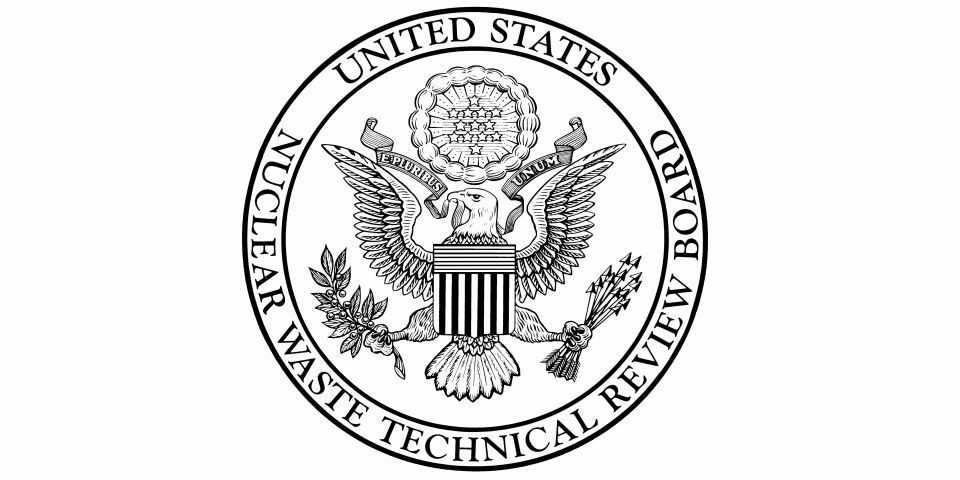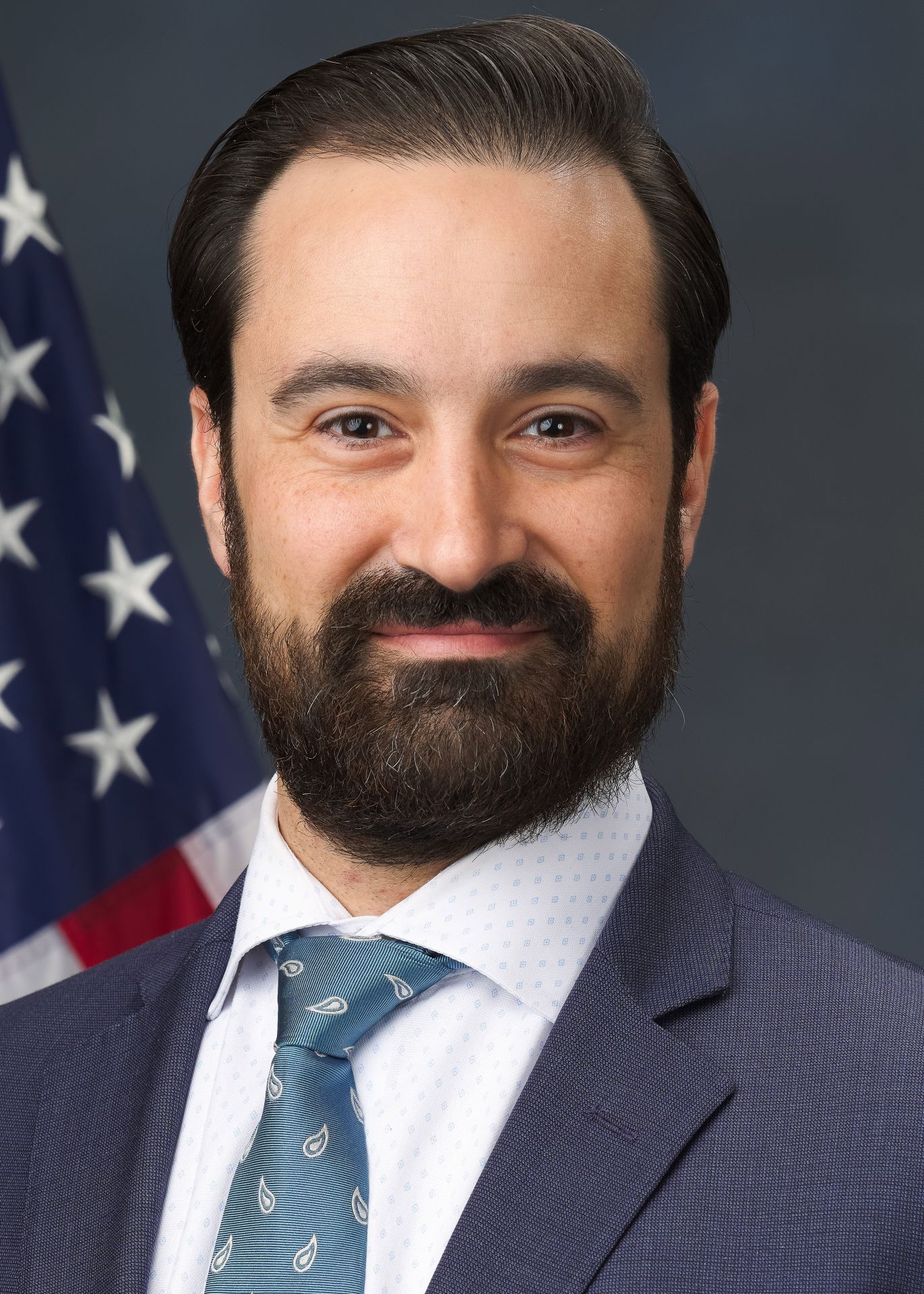Independent nuclear waste board members asked to resign

Nuclear Newswire has learned that the Trump administration last week requested that all members of the Nuclear Waste Technical Review Board resign, except for the board’s chair, Peter Swift.


Nuclear Newswire has learned that the Trump administration last week requested that all members of the Nuclear Waste Technical Review Board resign, except for the board’s chair, Peter Swift.

Marzano
The U.S. Senate Environment and Public Works Committee voted 10–9 last week to advance the nomination of Matthew Marzano to serve on the Nuclear Regulatory Commission. It was a party-line vote, with all Democrats supporting Marzano and all Republicans voting “no.”
Marzano was nominated by President Biden in July to fill the open NRC seat, and the EPW Committee held a hearing in September on his nomination. His nomination will now go to the Senate for a vote, but it is not certain whether that will happen before the end of the year, in which case his nomination process would start over in 2025.
The five-member commission has been without a tiebreaker vote since June 2023 when Jeff Baran’s term expired.
President Biden has announced the appointment of six new members to the Nuclear Waste Technical Review Board, an independent federal agency that evaluates the technical and scientific validity of the Department of Energy’s activities related to managing and disposing of high-level radioactive waste and spent nuclear fuel.
The U.S. Department of Energy plans to invest up to $900 million to support the initial deployment of small modular reactor technology.
The DOE issued a notice of intent to fund projects from President Biden’s infrastructure law with the goal of accelerating advanced nuclear projects to support energy infrastructure. The department estimates the country will need up to 950 gigawatts of reliable and clean energy to help reach the goal of net-zero emissions by 2050. Nuclear currently generates 18.6 percent of U.S. electricity.

As he joined with other state officials and community stakeholders at a celebration last week marking the completion of Vogtle Units 3 and 4, Georgia Gov. Brian Kemp said there’s potential for a fifth nuclear reactor at the site.
Nuclear energy advocates attended a White House summit today on domestic nuclear deployment and will help advise a new federal initiative to support building new grid-scale nuclear reactors.
The event showcased recent policy developments and new industry investments that have changed the playing field—for the better—for nuclear during the past few years. The White House is calling it “the largest sustained push to accelerate civil nuclear deployment in the United States in nearly five decades.”

The U.S. Senate approved April 30—by unanimous consent—a bill banning the importation of Russian uranium. The House of Representatives passed the bill, House Resolution 1042, last fall, and now President Biden is expected to sign it into law.

Hanson
President Biden announced yesterday his intent to renominate Christopher T. Hanson to be a member and chair of the Nuclear Regulatory Commission.
Hanson was designated NRC chair by Biden in 2021 and was sworn in as a commissioner on June 8, 2020. He is filling the remainder of a five-year term ending on June 30, 2024.
Experience: Hanson has more than two decades of government and private-sector experience in nuclear energy. Prior to joining the NRC, he served as a staff member on the Senate Appropriations Committee, where he oversaw civilian and national security nuclear programs. Before working in the Senate, he was a senior advisor in the Department of Energy’s Office of Nuclear Energy. He also worked in the DOE’s Office of the Chief Financial Officer, where he oversaw nuclear and environmental cleanup programs and managed the department’s relationship with congressional appropriations committees.
NuScale announced today a 28 percent reduction in full-time staff, affecting 154 workers, as part of the company’s move to focus resources on “key strategic areas”— including deployment of its small modular reactor.

At a joint press conference in the White House East Room last week, President Biden and U.K. Prime Minister Rishi Sunak—in Washington for two days of discussions with the president, members of Congress, and business leaders—debuted a new bilateral agreement dubbed the Atlantic Declaration for a Twenty-First Century U.S.-U.K. Economic Partnership.
In a November letter to President Biden, ANS president Steven Nesbit and U.S. Nuclear Industry Council president and chief executive officer Bud Albright urged the president to proceed with nominations for the two open seats on the Nuclear Regulatory Commission. The letter stated, “The NRC operates best with a full complement of five qualified commissioners who have diverse and complementary backgrounds. . . . Unfortunately, the commission was last at full strength in January 2021, nearly a year ago.”
A statement from Steven P. Nesbit, president of the American Nuclear Society, and Lonnie R. Stephenson, international president of the International Brotherhood of Electrical Workers.

America’s electric utility workers and nuclear engineers are ready to work together to help rapidly decarbonize and electrify the economy. We welcome provisions in the bipartisan infrastructure bill that aim to prevent premature closures of our nuclear power plants. Through measures such as production tax credits, President Biden can safeguard America’s largest carbon-free energy source by recognizing the clean-air contributions of nuclear energy.

Manchin
Highlighting nuclear’s role in providing reliable power, reducing emissions, and addressing climate change, Sen. Joe Manchin (D., W.Va.) sent a letter to President Biden, urging him to support the continued operation of the United States’ civil nuclear fleet and prevent further plant closures. Manchin, chairman of the Senate Energy and Natural Resources Committee, said that preventing the closure of existing nuclear power plants is critical to achieving emission reduction goals while ensuring a reliable grid.